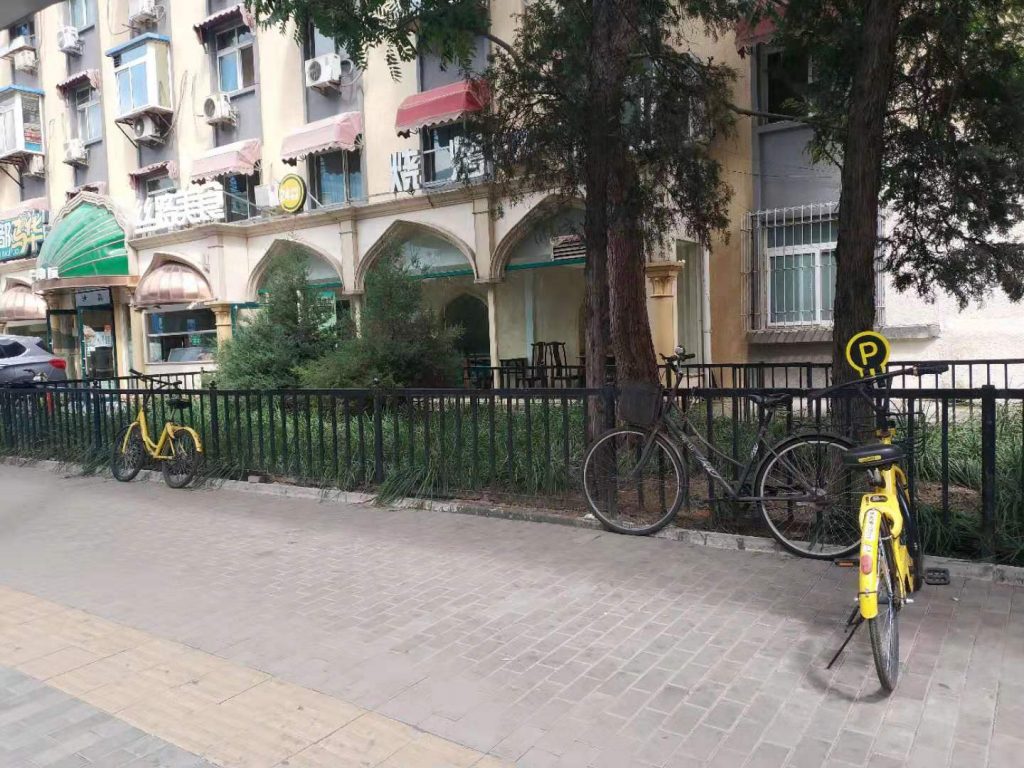There are signs that Chinese bike-sharing startup Ofo might make a comeback, just as it promised in June after it emerged just how debt-ridden the firm was. Although Ofo’s app is still accessible in China and some of its bikes are still usable, the company hasn’t been able to manage and service its fleet of bikes, resulting in a high number of broken vehicles and chaotic parking.
Part of the firm’s comeback attempt might be a slightly new operating model.
Earlier this month in Shenzhen, a major city in South China’s Guangdong province, Chinese media outlet Pedaily noticed Ofo bikes with “P’ signs appearing on the sides of streets. Ofo’s co-founder Yu Xin at that time confirmed his company has been advocating a new model in Shenzhen, under which users will need to park their Ofo bikes along those designated bikes with “P” signs – a departure from its original policy allowing users to park the bikes anywhere you want.
According to Pedaily, those who fail to park in this more restricted manner will be charged RMB 20 (USD 3), as stated by Ofo’s app for users in Shenzhen.

KrASIA today spotted similar Ofo bikes with “P” sign in a street in eastern Beijing.
A man handling these bikes told KrASIA that he had been hired by an outsourcing firm to do so, implying that he’s not employed by Ofo directly.
A white label stuck to the bike with the “P” sign says that this vehicle is for testing purposes only. It can not be unlocked through the Ofo app.
Ofo appears to want to bring the new guided parking model to Beijing, too. But whether this is enough to ensure a lasting comeback is still doubtful.
It’s currently doing what it can to monetize what assets it still owns. For instance, Ofo has gained new interests from advertisers. Ofo’s WeChat account sent out an advertisement for an English-learning company on Wednesday, after a five-month advertizig hiatus.
Curiously, this “sign of life” from Ofo in the form of an ad prompted dozens of encouraging comments in support of the struggling bike-sharing firm.
Just one year ago, an angry crowd of more than 1,000 people had gathered at Ofo’s headquarters in Beijing to claim back their deposits which the company wasn’t able to pay back.
Despite all this, Ofo still has a spot in some Chinese users’ hearts. It was the first company to pioneer the bike-sharing model, and it fell into difficulties last year as it was unable to generate enough income to fund its cost and labor-intensive operations.
Other measures Ofo took to save itself from totally sinking was adding an e-commerce site inside its app, which still has at least 16 million users waiting to claim back their deposits.
In the first half this year, Ofo still booked 202,000 daily rides on average, but it fell far behind Mobike with 851,000 rides and Didi-controlled Bluegogo with 513,000 rides, according to information disclosed by Beijing Municipal Commission of Transport on July 31.
Ant Financial-backed Hellobike, a relatively new entrant to the market, still lagged behind Ofo, with only 31,000 rides.
